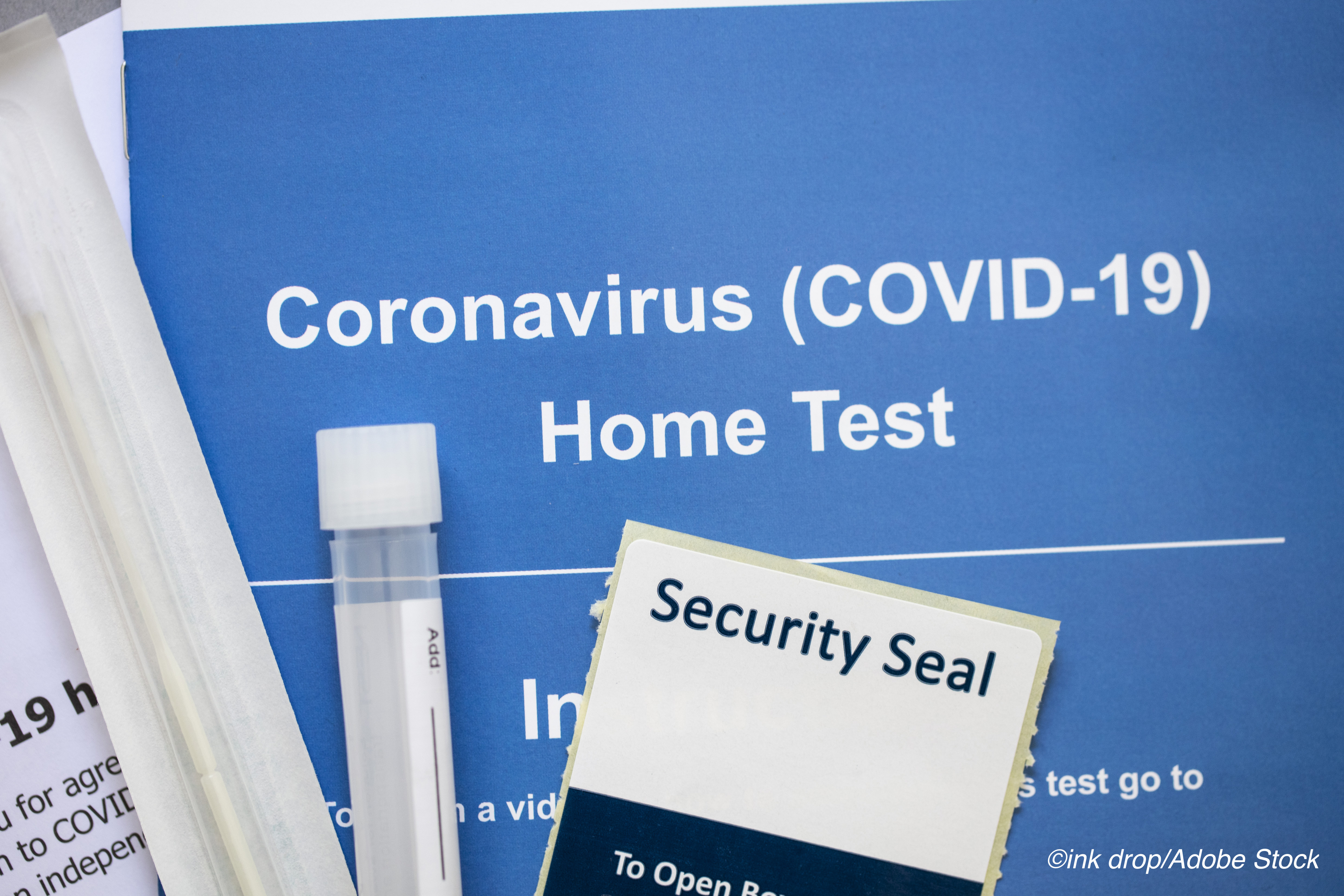
Weekly home-based, rapid antigen testing for Covid-19 combined with self-enforced isolation of people positive for SARS-CoV-2 infection could save thousands of lives at an acceptable cost, according to findings from a mathematical modeling study performed by researchers from Yale School of Public Health.
The modeling estimated close to 3 million fewer infections over a two-month period with weekly rapid home testing and isolation, despite the fact that the study was designed to portray the strategy in the least favorable light.
For example, investigators assumed that three out of four testing kits mailed to U.S. households would be thrown away and never used and that, among the 25% of people who actually used the test, three out of four who tested positive would ignore their positive results.
In addition, they assumed that fewer than one in four people who elected to self-isolate would do so for the full week recommended, and they calculated a specificity and sensitivity that was lower than what has been reported for rapid antigen testing.
“We basically assumed the worst to make this test look bad, but even with that we still found that it could avert millions of infections and more than 15,000 deaths at a perfectly reasonable cost,” mathematician and lead researcher A. David Paltiel, PhD, of the Yale School of Public Health, told BreakingMED.
The study findings were published online March 9 in Annals of Internal Medicine.
Without testing, the model estimated that 11.6 million infections and 119,000 deaths would occur over the 60-day period, at a total cost of $10 billion ($6.5 billion attributed to inpatient care and $3.5 billion to lost productivity).
The Covid-19 mitigation strategy evaluated — which involved mailing packages of SARS-CoV-2 rapid tests to every household in the United States and asking people to test once-a-week and self-isolate for a week if positive — was estimated to avert 2.8 million infections and 15,700 deaths over the 2-month period, at an increased cost of $22.3 billion.
Lower inpatient costs ($5.9 billion) partially offset the estimated cost associated with additional testing expenditures ($12.5 billion) and lost workdays ($14 billion), for an incremental cost-effectiveness ratio of $7,890 per infection averted and $1.4 million per death averted.
“Skeptics have raised a lot of objections to rapid antigen testing, and some of those objections are well founded,” Paltiel told BreakingMED. “Ours is not the first analysis of home-based antigen testing strategies, but there have been concerns that previous analyses were somewhat dismissive of the concerns.”
Paltiel said that while molecular PCR-testing has many advantages, antigen testing has clear advantages for determining patient contagiousness at a population level.
“It’s not that one is a Lamborghini and the other is a Yugo,” he said. “These are two very different tests that are good for different things. The problem with the PCR test is that it is incredibly hypersensitive. It can pick up even one strand of viral RNA, and if someone had Covid-19 three months ago they will probably have that.” Antigen testing, in contrast, is highly sensitive when people are shedding a lot of virus.
“It is a contagiousness test, and that is what we need for public health purposes,” he said.
The researchers assumed a range of test costs. When initial and confirmatory test costs were $5 and $20, respectively, the intervention had an incremental cost-effectiveness ratio of $1.4 million per death averted. When initial and confirmatory test costs were lower ($1 and $10) and higher ($10 and $50), the estimated incremental cost-effectiveness ratios per death averted were $802,000 and $2.2 million, respectively.
“Our model-based analysis found that a nationwide program of frequent antigen-based home testing and self-isolation could greatly reduce total infections and mortality at a justifiable cost,” the Yale researchers wrote, adding that they arrived at this conclusion using cost-effectiveness analysis and assumptions specifically chosen to portray all aspects of intervention in an unfavorable light.
Paltiel told BreakingMED that frequent, rapid, home antigen testing may be more important than ever with increasing vaccine coverage of the U.S. population.
The Biden administration recently announced the purchase of more than 60 million rapid tests from six unidentified suppliers by the end of summer. The Department of Defense also reached a $230 million deal with Australia-based Ellume to open a U.S. factory with the goal of producing 19 million antigen tests each month.
“The vaccines are miraculous, but at this point even they are like pouring a bucket of water on a raging forest fire,” he said. “The more we help the vaccines with other mitigation strategies the better off we will be. We need to continue to social distance and wear masks. And rapid antigen testing ought to be part of our national control strategy to give the vaccines a fighting chance to get us out of this pandemic.”
- Weekly home-based, rapid antigen testing for Covid-19 combined with self-enforced isolation of people positive for SARS-CoV-2 infection could save thousands of lives at an acceptable cost, according to findings from a modeling study.
- The modeling estimated close to 3 million fewer infections over a two-month period with weekly rapid home testing and isolation, despite the fact that the study was designed to portray the strategy in the least favorable light.
Salynn Boyles, Contributing Writer, BreakingMED™
This research was funded by the National Institutes of Health. Paltiel and the other investigators reported no relevant conflicts related to this research.
Cat ID: 125
Topic ID: 79,125,730,933,125,926,192,927,925,934


